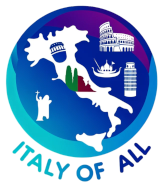The province of Pavia, situated in the Lombardy region of northern Italy, is known for its rich historical heritage, educational institutions, and fertile agricultural landscapes. Nestled along the banks of the Ticino and Po rivers, Pavia is a blend of scenic countryside, vibrant town life, and significant cultural landmarks.
Geographically, the province of Pavia is characterized by its vast plains which form part of the larger Po Valley, one of Italy’s most important agricultural areas. The landscape is punctuated by the Ticino and Po rivers, which provide essential water resources for agriculture and are key to the region’s biodiversity. Additionally, the southern part of the province features the Oltrepò Pavese, an area renowned for its rolling hills and wine production.
Historically, Pavia has a storied past, having been a significant city in Roman times known as Ticinum. It gained prominence again in the medieval period when it became the capital of the Kingdom of the Lombards. The University of Pavia, one of the oldest in Europe, was founded in 1361 and has been a center of academic excellence for centuries, attracting students and scholars from around the world.
Culturally, Pavia is rich in traditions and hosts several historical and cultural sites. The city of Pavia is known for its medieval towers, the covered bridge over the Ticino River, and the Visconti Castle, which now houses museums and art collections. The province celebrates various festivals and events that reflect its history and cultural heritage, including the Palio di Pavia, a historic boat race that dates back to medieval times.
Cuisine in Pavia reflects the agricultural produce of the region. It is particularly known for its rice dishes like “risotto,” a staple in local cuisine due to the extensive rice paddies in the area. Other specialties include “zuppa pavese” (bread soup with poached eggs) and “salame d’oca di Mortara” (goose salami), a unique local delicacy. The wines from Oltrepò Pavese, especially the sparkling and red varieties, are also highly regarded.
Economically, Pavia’s economy is predominantly based on agriculture, with significant contributions from rice and wine production. The region’s universities and research institutions also add a substantial educational and scientific dimension to the local economy. In addition, there is a growing focus on tourism, particularly agri-tourism and cultural tourism, which takes advantage of the area’s scenic beauty and historical sites.
Despite challenges such as economic diversification and environmental sustainability, Pavia is actively working towards leveraging its cultural and natural assets to enhance its economic profile and quality of life for residents. Efforts include promoting local products, developing sustainable tourism initiatives, and preserving its rich architectural heritage.
Overall, the province of Pavia offers a captivating mix of natural beauty, historical depth, and cultural richness. Its ongoing initiatives to preserve its heritage and promote sustainable development ensure its continued significance within Lombardy and Italy’s broader cultural and economic landscape.
Comuni in Pavia Province:
- Borgo Priolo
- Badia Pavese
- Albonese
- Albaredo Arnaboldi
- Bornasco
- Bascapè
- Bastida Pancarana
- Borgoratto Mormorolo
- Borgarello
- Bosnasco
- Azzanello
- Arena Po
- Albuzzano
- Barbianello
- Belgioioso
- Bagnaria
- Bereguardo
- Borgo San Siro
- Berlingo
- Broni
- Canevino
- Calvignano
- Castelletto di Branduzzo
- Bressana Bottarone
- Brallo di Pregola
- Casatisma
- Bozzole
- Canneto Pavese
- Camairago
- Breme
- Castelnovetto
- Casei Gerola
- Castello d’Agogna
- Campospinoso
- Casorate Primo
- Carbonara al Ticino
- Cava Manara
- Casteggio
- Cassolnovo
- Candia Lomellina
- Casanova Lonati
- Fornace
- Ferrera Erbognone
- Cigognola
- ** Fortunago
- Certosa di Pavia
- Cura Carpignano
- Cervesina
- Dorno
- ** Corte Palasio
- Ceretto Lomellina
- Corteolona
- Cornale e Bastida
- Cergnago
- Confienza
- Cecima
- Crotta d’Adda
- Filighera
- Copiano
- Ceranova
- Cilavegna
- Chignolo Po
- Codevilla
- Mairago
- Galliavola
- Landriano
- ** Linarolo
- Marcignago
- Gropello Cairoli
- Inverno e Monteleone
- Fresonara
- Golferenzo
- Gambarana
- Martinengo Martiniana Po
- Garlasco
- Gerenzago
- Lomello
- Lardirago
- Lungavilla
- Menconico
- Magherno
- Langosco
- Gremiasco
- Gerre de’ Caprioli
- Gambolò
- Godiasco Salice Terme
- Giussago
- Frascarolo
- Gravellona Lomellina
- Palestro
- Mezzana Rabattone
- ** Nicorvo
- Oliva Gessi
- Miradolo Terme
- Montesegale
- Montalto Pavese
- Parona
- Ottobiano
- Montebello della Battaglia
- Montecalvo Versiggia
- Mornico Losana
- Olevano di Lomellina
- Montù Beccaria
- Pancarana
- Montescano
- Mortara
- Pavia
- Mezzanino
- Monticelli Pavese
- Rognano
- Pieve Porto Morone
- Retorbido
- PicoPiea
- ** Portalbera
- Robecco Pavese
- Rocca de’ Giorgi
- San Cipriano Po
- Pietra de’ Giorgi
- Pieve San Giacomo
- Pieve del Cairo
- Pieve Albignola
- Ponte Nizza
- Pizzale
- Pozzol Groppo
- Roncaro
- Redavalle
- Robbio
- Rovescala
- Pozzaglio ed Uniti
- San Colombano Belmonte
- Rosasco
- Pinarolo Po
- Rivanazzano Terme
- Romagnese
- Rocca Susella
- Settime
- ** San Genesio ed Uniti
- Scaldasole
- Suardi
- San Zenone al Po
- Siziano
- Silvano Pietra
- Sant’Angelo Lomellina
- Stradella
- Sant’Alessio con Vialone
- Sartirana Lomellina
- San Martino Siccomario
- San Giorgio di Lomellina
- Santa Margherita di Staffora
- Sannazzaro de’ Burgondi
- Semiana
- Santa Cristina e Bissone
- San Damiano al Colle
- Spessa
- Santa Maria della Versa
- Santa Giuletta
- ** Villa Biscossi
- Torre de’ Negri
- Vellezzo Bellini
- Val di Nizza
- Travacò Siccomario
- Zerbo
- Torralba
- Tromello
- Torre d’Arese
- Trivolzio
- Villanova d’Ardenghi
- Torre Beretti e Castellaro
- Volpara
- Vistarino
- Torricella Verzate
- Vigevano
- Varzi
- Zavattarello
- Vernate
- Torrevecchia Pia
- Villaromagnano
- Valle Lomellina
- Vidigulfo
- Zeccone
- Tornata
- Verretto
- Zerbolò
- Torre d’Isola
- Valle Salimbene
- Trovo
- Zenevredo
- Velezzo Lomellina
- Voghera
- Villanterio
- Zinasco
- Zelo Surrigone
